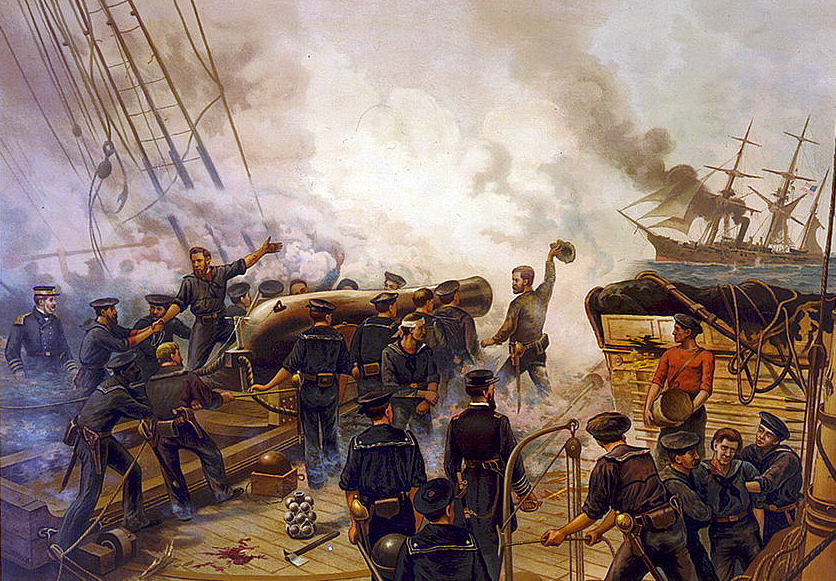
“At 9 a.m. local time Aug. 27, 1896, Great Britain declared war on the East African island nation of Zanzibar. Thirty-eight minutes later it was all over.”
THE SHORTEST WAR in history didn’t take long to play out. In fact it lasted slightly longer than an episode of your favourite sitcom.
At 9 a.m. local time Aug. 27, 1896, Great Britain declared hostilities against the tiny East African island nation of Zanzibar. Thirty-eight minutes later it was all over.
The fighting was the result of an internal power struggle following the death of the country’s pro-British ruler Sultan Hamad bin Thuwaini just two days earlier.

The Sultan’s nephew, Khalid bin Bargash, quickly seized power, outmaneuvering London’s preferred heir to the throne, Hamud bin Muhammed. Many suspected that Bargash had actually poisoned his royal uncle as part of a planned coup d’état.
Britain was determined to maintain its influence over the small but strategically important island, which sits just a few kilometres off the coast of Tanzinia (a German colony at the time). Bargash’s power play put those plans at risk. Interestingly, a treaty dating back to 1866 stipulated that London had final say over the succession of sultans on Zanzibar.

In a classic example of gunboat diplomacy, the British ordered five warships led by the cruisers HMS Philomel and HMS St George into the island’s harbour on the morning of Aug. 27 to issue an ultimatum to Bargash: Cede power to Muhammed by 9 a.m. or else.
Instead of giving in, the self-appointed ruler fortified his palace overlooking the bay and tried to buy some time with the British via a U.S. diplomat on the island.
The fleet’s commander, Admiral Sir Harry Holdsworth Rawson, ignored the appeals and within moments of the deadline, ordered his ships to begin firing directly into the palace.

As casualties neared 500 and with his own royal yacht holed by shells, Bargash fled to the German consulate and his remaining forces surrendered. Only one British sailor was wounded in the action.
Peace was quickly restored, Britain installed its preferred man to the throne, and London sought compensation from Zanzibar — it demanded to be reimbursed for the cost of the shells the Royal Navy fired in the brief clash.

Bargash hid in the German consulate and managed to escape to Dar es Salaam weeks later. He was captured in 1916 and briefly exiled to St. Helena. He died in 1927 at the age of 53.
(Originally published on MilitaryHistoryNow.com on May 14, 2012)
SOURCES
http://militaryhistory.about.com/od/battleswars1800s/p/anglozanzibar.htm
http://en.wikipedia.org/wiki/Anglo-Zanzibar_War










1986??
Thanks… fixed!
“Tanzinia”? Shurely you mean the Tanganyika bit of German East Africa? The “ganyika” bit was only replaced with “zania” in 1964 when Zanzibar merged with Tanganyika after independence, the modern name is a portmanteau of the two.
I didn’t realize that. Thanks.
This is very good writing skill.